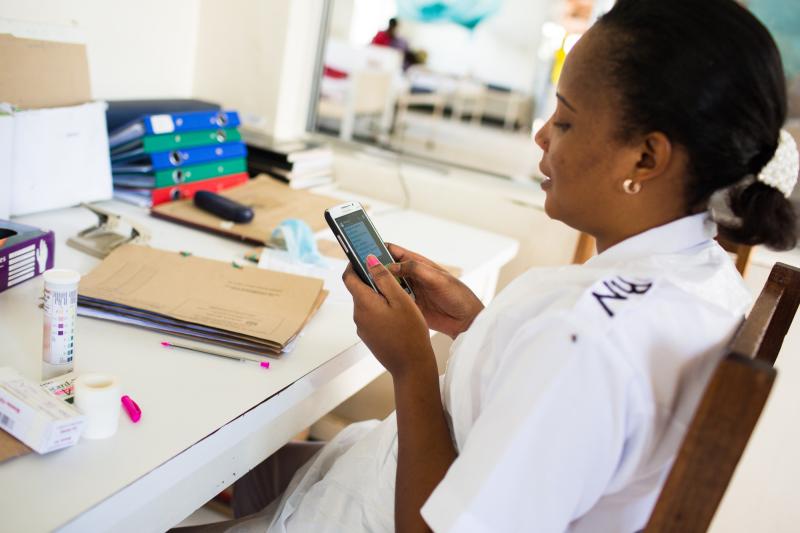Where We Work
See our interactive map


I am inspired by Paul Jones’s new article in opensource.com on mHero, a mobile phone-based platform that helps ministries of health stay in touch with their frontline health workers through SMS text messages.
mHero was developed by IntraHealth International and UNICEF in response to the Ebola crisis in West Africa. Jones highlights the work of Angie Nyakoon and Amanda Ndorbor, two agents of the Ministry of Health and Social Welfare in Liberia, who adapted mHero to address the mental health consequences of displacement and abandonment that resulted from the Ebola crisis.
On the heels of the Ebola outbreak and Zika virus, global communities are faced with the very real frailties of the health systems that are intended to protect us.
The promise of mHero and other information and communication technology (ICT) solutions in combating both communicable and non-communicable diseases and in reaching the grand convergence proposed in the Lancet Global Health 2035 report is real.
However, achieving that lofty goal will require applying and scaling up these solutions to the global community workforce.
One way to accelerate progress is through timely and complete engagement of community health workers themselves in the design of solutions. This basic principle of digital development is often cited but not consistently applied. Success comes when frontline health workers are trusted, encouraged, and supported, but most importantly, fully engaged in the process of developing the solutions they will rely upon.
On the heels of the Ebola outbreak and the declaration of the Zika Virus as a global health emergency, our global communities are faced with the very real frailties of the health systems that are intended to protect us. The role of ICT in creating resilient systems is profound, but we have yet to scratch the surface of possibilities. When communities—and community health workers in particular—are empowered with tools they understand, can master, and with which they are totally comfortable, they will apply their own creativity, as we saw in the case of Angie and Amanda.
I am thrilled to see how the adaption of mHero is helping to tackle mental health issues in Liberia such as the dire consequences of isolation and displacement. Many community health workers around the world experience similar feelings of isolation and frustration at not having access to information or the benefits of proximity to peers and colleagues. ICT can change that and we can’t afford to continue to deny them access.
Community health workers around the world experience feelings of isolation and frustration at not having access to information.
We are now days away from the Wilton Park meeting focused on “Unlocking the potential of the global community workforce post-Ebola: what are the models and strategies that work?” I look forward to pursuing opportunities to scale achievements such as mHero, and to learn from our failures as well, so we, as ambassadors for mobile solutions and development, may offer stronger perspectives and support to our country partners going forward.
This post originally appeared on the Wilton Park website. Photo by Trevor Snapp for IntraHealth International.
Get the latest updates from the blog and eNews




